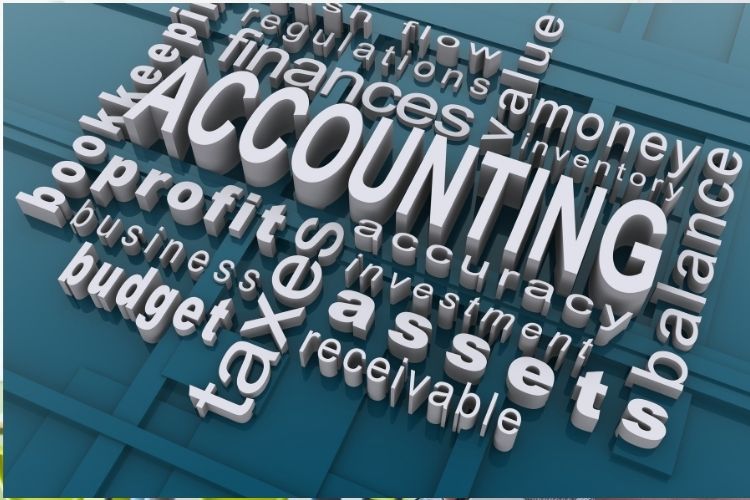

In the digitized era of education, the question “Can you do an accounting course online?” opens the door to a world of opportunities for aspiring accountants and professionals looking to enhance their skills. Online accounting programs have revolutionized the way individuals prepare for an accounting career, offering unparalleled flexibility and accessibility.
These programs provide a comprehensive curriculum, ranging from fundamental principles to advanced accounting techniques, all available through the convenience of online learning. Whether you’re starting your journey in the field of accounting or seeking to elevate your existing expertise, online courses offer a practical, efficient, and effective pathway to achieving your career goals.
In this article, we explore the various aspects of online accounting courses and how they serve as a stepping stone to a successful career in accounting.

In recent years, the digital revolution has transformed education, making it possible to learn almost anything online – including accounting. If you’re wondering, “Can you do an accounting course online?”, the answer is a resounding yes!
Online accounting courses have become increasingly popular, offering a flexible and convenient way to gain knowledge in financial accounting, managerial accounting, and beyond.
One of the most compelling reasons to choose an online accounting course is the unparalleled flexibility and convenience it offers. In today’s fast-paced world, balancing professional commitments, personal life, and education can be challenging.
Online management accounting courses cater to this need by providing a learning platform that adapts to your schedule. Whether you are a full-time professional, a parent, or someone looking to learn how to prepare financial statements on your own, these courses allow you to learn at your own pace, without the constraints of traditional classroom schedules.
You can watch lectures, complete assignments, and engage in discussions at times that suit you best, making it easier to integrate education into your busy life. This flexibility also extends to the pace of learning, enabling you to spend more time on complex topics like financial statement analysis or breeze through subjects you’re already familiar with.
The #1 to make money online with TikTok Search (FREE TRAINING)

Online platforms have democratized access to education by offering a wide range of courses that cater to diverse learning needs and career goals. Whether you are starting with the basics of accounting or looking to delve into more specialized areas like forensic accounting, financial analysis, or international financial reporting standards, online courses have you covered.
This variety ensures that everyone from beginners to seasoned professionals can find courses that enhance their skills and knowledge. Additionally, many online courses are designed to cater to different learning styles, using a mix of videos, interactive quizzes, and project-based learning to keep the content engaging and accessible.
Another significant advantage of online accounting courses is the opportunity they provide to learn from some of the world’s most prestigious institutions. Platforms like Coursera, edX, and Harvard Business School Online have partnered with top universities and business schools, bringing the expertise of renowned faculty and industry leaders to your fingertips.
This access breaks down geographical barriers, allowing you to benefit from high-quality education regardless of your location. These courses often include guest lectures and insights from leading accountants, financial analysts, and business leaders, providing real-world perspectives that enrich the learning experience.

Cost-effectiveness is a crucial factor that makes online accounting courses an attractive option. Traditional accounting degrees can be expensive, often involving significant tuition fees, textbooks, and other associated costs.
Online courses, on the other hand, significantly reduce these expenses. Many platforms offer free online accounting courses or affordable options that provide the same quality education at a fraction of the cost. This affordability makes accounting education more accessible, especially for those who might not have the financial means to attend traditional colleges or universities.
Moreover, many online courses offer the option to audit the course for free, charging a fee only if you want a certificate of completion. This model allows learners to access high-quality content without financial constraints, democratizing education in the truest sense.
Online accounting courses offer a flexible, comprehensive, and cost-effective way to gain knowledge and skills in the field of accounting. They provide a unique opportunity to learn at your own pace, choose from a wide range of topics, access world-class education, and do so without incurring the high costs associated with traditional learning.
Whether you’re looking to start a new career in accounting, upgrade your skills, or simply explore an interest in financial matters, online courses offer a convenient and effective way to achieve your goals.

When selecting an online accounting course, the accreditation and recognition of the program are paramount. Accredited courses are evaluated and approved by educational authorities, ensuring they meet high standards of quality and rigor. This recognition is crucial for several reasons:
Researching the accrediting body and ensuring it is recognized in the accounting profession is a critical step in choosing the right course.
The content of the online accounting course should align with your career goals and interests. Online courses offer a broad spectrum of specializations, including but not limited to:
Assessing the curriculum, the expertise of the instructors, and the relevance of the course content to your desired field in accounting is vital for making an informed decision.

An effective online accounting course should not only provide theoretical knowledge but also emphasize practical application. Courses that offer real-world case studies, practical assignments, and simulations help in translating theoretical concepts into practical skills. These include:
Courses that offer internships or real-world project opportunities can provide invaluable practical experience.
Many online accounting courses offer certifications or academic credits upon completion, which can significantly enhance your professional profile:
Considering courses that provide a pathway to formal qualifications or recognition can be a crucial step in your career advancement.
Choosing the right online accounting course involves a careful consideration of accreditation, course content, practical application, and the potential for certification or academic credit. By aligning your choice with your career goals and ensuring the course offers a blend of theoretical knowledge and practical skills, you can maximize the benefits of your online learning experience in accounting.

Financial Accounting Fundamentals is a cornerstone course for anyone entering the field of accounting. It covers the essential concepts and practices used in the business world, providing a strong foundation for all accounting studies. Key areas of focus include:
This course is ideal for beginners and provides the necessary background for more advanced studies in accounting.
Managerial Accounting courses focus on the use of accounting information for internal decision-making. Unlike financial accounting, which aims at providing information to external stakeholders, managerial accounting serves the needs of managers within the organization. Critical components include:
This course is beneficial for those looking to move into management roles or enhance their understanding of how financial data drives business decisions.
Forensic Accounting is a specialized field that combines accounting, auditing, and investigative skills. This course is particularly relevant for those interested in the legal aspects of accounting and financial fraud. Key learnings include:
This course is ideal for those looking to specialize in a niche but increasingly important area of accounting.

Corporate Finance and Financial Management courses delve into the intricacies of managing an organization’s financial health. These courses are vital for those aiming to understand or manage a company’s financial strategy. Core aspects include:
These courses are suitable for professionals aiming for roles in corporate finance, financial planning, and analysis, or for entrepreneurs managing their business finances.
Each of these popular online accounting courses offers unique insights and skills, catering to various interests and career paths within the field of accounting. Whether your interest lies in the fundamentals of financial accounting, the strategic aspects of managerial accounting, the investigative nature of forensic accounting, or the comprehensive scope of corporate finance and financial management, online courses provide the flexibility and depth to explore these areas thoroughly.

One of the most significant benefits of online accounting courses is the flexibility to learn at a pace that suits each individual’s learning style and schedule. This aspect is particularly advantageous for topics that require more time and concentration, such as financial statement analysis or the intricacies of generally accepted accounting principles (GAAP).
Online accounting courses frequently incorporate interactive elements that transform learning from a passive to an active experience.
The #1 to make money online with TikTok Search (FREE TRAINING)

Online courses are not just about individual study; they also provide ample opportunities to network and collaborate with peers and professionals globally.
With online courses, the learning resources are available 24/7, providing continuous and easy access to a wealth of information.
Online learning in accounting offers a range of benefits that cater to diverse learning styles and professional needs. From the convenience of learning at your own pace to the dynamic and interactive nature of course materials, and the opportunities for networking and continuous learning, these courses present a comprehensive and flexible approach to education in the field of accounting.

The journey to a successful accounting career begins with a solid understanding of the basics. Starting with courses that cover fundamental accounting principles and practices is not just recommended, it’s essential. Here’s why:
As the field of accounting is vast, specializing in a particular area can give you a competitive edge. Specialization allows you to focus on a niche that aligns with your career goals and interests, such as:
Professional certifications like CPA (Certified Public Accountant) or CMA (Certified Management Accountant) are highly regarded in the accounting field. They signify a high level of expertise and commitment to the profession.
In the accounting profession, theoretical knowledge needs to be complemented with practical skills. These include:
Preparing for a career in accounting involves a strategic mix of foundational knowledge, specialization, certification preparation, and practical skills development. By focusing on these areas, you can build a strong, well-rounded skill set that will prepare you for various roles in the accounting field and set you on the path to professional success.

Online accounting courses open up a world of opportunities for learning and advancing your career in accounting. With flexibility, a wide range of courses, and access to quality education, these courses are an excellent choice for anyone looking to enter or progress in the field of accounting.
Remember to choose courses that align with your career goals, offer practical skills, and come from accredited institutions. So, start your journey today and embrace the convenience and effectiveness of learning accounting online!





